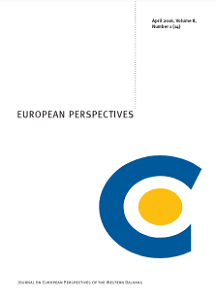Nuclear Energy in Bulgaria: Strategic Implications for the EU and Russia
Nuclear Energy in Bulgaria: Strategic Implications for the EU and Russia
Author(s): Elvira Oliva, Paolo SorbelloSubject(s): Politics, Energy and Environmental Studies, Economic policy, Environmental and Energy policy, International relations/trade, Economic development, EU-Accession / EU-DEvelopment
Published by: Mednarodni inštitut za bližnjevzhodne in balkanske študije IFIMES
Keywords: Bulgaria; Nuclear Energy; Russian Federation; European Union; Energy Security; Two-level game;
Summary/Abstract: This paper aims at understanding the impact of Bulgarian politics and policy in energy relations between the EU and Russia. Chiefly, our case analysis focuses on the prospective construction of new nuclear facilities and its impact on the Black Sea region, within the European Union, and on the relations between Sofia, Brussels, and Moscow. The first part of this work is dedicated to outlining the most significant direction of the research: nuclear energy in Bulgaria. In the second part, a brief historical context of the Bulgaria-EU negotiations precedes a section that analyses the current Sofia-Brussels energy dialogue, from accession (2007) onward. The last analytical part delineates Bulgaria as a vertex in the framework of Russia-EU relations. The Bulgarian energy complex is seen as a strategic hub for prospective pipelines, but also an important market that could be used to exert influence in the Black Sea region as well. Bulgaria might be considered a strategic centre for regional and international energy cooperation.
Journal: International scientific journal European Perspectives
- Issue Year: 4/2012
- Issue No: 1 (6)
- Page Range: 35-55
- Page Count: 21
- Language: English

